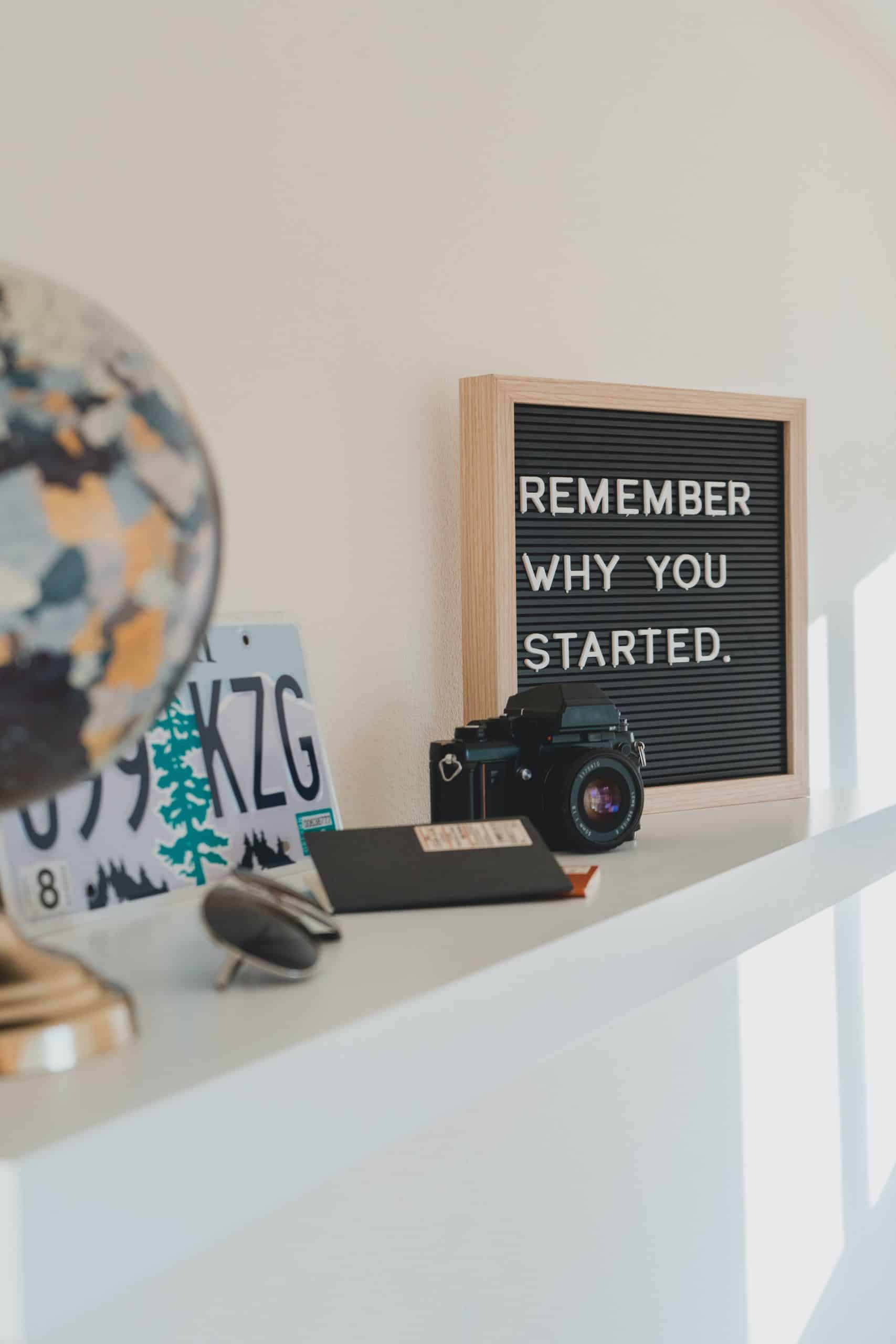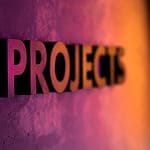How to Deal With Overwhelm When Learning New Skills (i.e. What to Do When I Am Stuck)

I don't want to convince you that learning is easy. You know damn well that is complicated and full of challenges. Even when you master the process of effective knowledge acquisition, you might still run into different obstacles.
Knowing how to learn is one side of the equation. However, being able to sustain your progress over a long period is an entirely different beast. It's a mental war that you have to wage against your brain and the resistance this spongy thing will create,
This article is supposed to serve you as a life ring. Whenever you feel that you're drowning in the sea of overwhelm, revisit it to resurface.
Feel free to use just one of these strategies or all of them. The most important thing is that you shake off any gloomy feelings and snap out of the state of inertia.
What You Need to Know About Overwhelm
The first you need to know about learning how to deal with overwhelm is that it leads to three results:
They all have one thing in common - loss of control. If you ever notice any of these telltale signs, you should be alarmed. It means that you are losing the grip on your learning process. Instead of being organized and methodical, you start floundering.
Here are some of the strategies that may help you regain the feeling of control.
How To Deal With Overwhelm
1. Be primitive
First thing you need to be aware of is the concept of activation energy.
Activation energy is the energy need to start performing an action. The higher it is, the less of a chance that you will start performing a given action.
That means that you should reduce any clutter that stands in your way and holds you back. It also concerns your general attitude. If you overthink everything, your activation energy will be high as well. You can't focus on the start of the action if dozens of thoughts and tasks are running through your head.
In other words, focus on primitive tasks.
Here is what I mean by that:
Remember that ideally, you want to become a life-long learner. Any temporary setback is irrelevant in the grand scheme of things. The only thing you should care about is regularity.
Don't break the chain at all costs. Review even two flashcards if you're exhausted today or don't have time, but do something every day!
2. Identify the constraints
The theory of constraints states that in any system, there is one function, resource, process area, or process step that constrains the entire system's ability to deliver on its mission.
Sometimes it will mean that removing just one obstacle will unblock your potential. Other times, you will discover that after eliminating that one significant constraint, there will be another one looming underneath.
In any case, do your best to get rid of these obstacles. Once you do, your learning process should regain its previous smoothness.
Keep in mind that your constraints can be:
Try to identify them on your own. If you can't figure it out, ask someone trust-worthy for help. Sometimes it's easier to spot such problems when you're on the outside looking in.
3. Lower The Intensity
The intensity you can endure will always be a resultant of your:
It's impossible to tell anyone that they should learn X amount of hours per day or do Y flashcards per day. You can suggest a goal that will later be verified by reality. In other words, good goals will be established only after some trial and error.
Regardless, if you notice that instead of jumping for joy at the thought of learning and discovering the unknown, you feel like somebody slapped you with a slimy mackerel, it's time to stop. It's time to rethink whether your learning pace is not too ambitious.
Don't get me wrong - ambitions are great, but regularity always beats short-lived zeal. If your will to learn wanes, decrease your learning and practice intensity temporarily.
Try to find out what pace and effort level make you happy. And don't even try to think of it as a failure. You're making a wise and strategic decision that will guarantee your long-term success.
4. Take more breaks
Very often, a simple solution to feeling overwhelmed is taking more breaks.

Photo by Nathan Dumlao on Unsplash
How often should you do it?
Once again, your endurance threshold will depend on all the variables mentioned in the previous point.
Sometimes you will discover that you can plug away for hours on end, and sometimes 20 minutes of tackling a complex topic will break you.
It's definitely true for me. I have noticed that my ability to write is very fragile. The slightest distractions will throw me off most of the time. What's more, very often, even 40 minutes of writing leaves me in tears. On the other hand, I can effortlessly pore over ANKI for hours and create hundreds of new flashcards. I am positive, you will observe such regularities in your daily routine as well.
The most important question is - when should you take a break?
The internet is full of different numbers. Some say 20 minutes while the other ones cite a 40-minute rule. None of these things is true.
Your energy levels, and thus your concentration, constantly fluctuate throughout the day. They are also heavily influenced by the variables mentioned above.
That's why the best predictor of the need to take a break is your mental fatigue.
Whenever you:
it's time to pause.
Keep in mind that your breaks should be meaningful. That means no electronics and no taxing activities. Go for a walk, meditate, or lie down.
Rest for as long as you need.
It's crucial for your full recovery. I know that 10-15 minutes of lying in my bed is usually all I need. Very often, that leads to micro-naps - I am okay with that. I know that once I get up, I am ready to rumble again.
5. Take care of SPDSH (sleep, private life, diet, sports, health)
Damn, I really tried to find some cool acronym for these elements, but (HuSH PeDo!) is all I got. On the bright side, it is as memorable as it might be offensive to some.
The critical takeaway from this point is that your learning project is not placed in a magical void. Your life is a system of interconnected vessels. If you have problems in your private life or you are sick, learning will be the last thing on your mind. Don't neglect those things at the cost of education.
Trust me - I know how difficult it is. I learn so much that usually, my sleep suffers. It's not wise, and it's something I have been struggling with for a long time.
6. Organize your learning better
The term Information Fatigue Syndrome has been coined recently to refer to stress coming from problems with managing overwhelming information.
Some consequences of IFS listed by Dr David Lewis, a British psychologist, include: anxiety, tension, procrastination, time-wasting, loss of job satisfaction, self-doubt, psychosomatic stress, breakdown of relationships, reduced analytical capacity, etc. The information era tends to overwhelm us with the amount of information.
For example, you might feel stressed by dozens of tabs in your web browser or 20 studies you still have to go through.
I get it because I struggled with it in the past. How have I solved it?
I have organized my learning better, i.e., I focused my full energy on learning in ANKI whenever it's possible.
If I run into some papers or articles, I paste them into ANKI. I know they are safe and sound there, and I can process them by breaking them down into flashcards later. ANKI is my command center, and this feeling helps me stove away any anxiety related to learning.
With this conviction, you can devote all your energy to comprehension, analysis, and retention of the learned material, instead of eating your heart out.
7. Make a shift
A plateau happens when your brain achieves a level of automaticity; in other words, when you can perform a skill on autopilot, without conscious thought. Our brains love autopilot because, in most situations, it's pretty handy. It lets us chew gum and walk and ride bikes without having to think about it, freeing our brains for more important tasks. When it comes to developing talent, however, autopilot is the enemy, because it creates plateaus.
Research by Dr. K. Anders Ericsson, a professor of psychology at Florida State University and co-editor of The Cambridge Handbook of Expertise and Expert Performance, shows that the best way past a plateau is to jostle yourself beyond it; to change your practice method, so you disrupt your autopilot and rebuild a faster, better circuit. One way to do this is to speed things up—to force yourself to do the task faster than you usually would. Or you can slow things down—going so slowly that you highlight previously undetected mistakes. Or you can do the task in reverse order, turn it inside out or upside down. It doesn't matter which technique you use, as long as you find a way to knock yourself out of autopilot and into your sweet spot. - Daniel Coyle - The Little Book of Talent: 52 Tips for Improving Your Skills
Personally, making a shift means creating silly flashcards which are based on ridiculous associations or observations. It's refreshing enough that even when I start feeling a bit jaded, this procedure restores the proper frame of mind.
8. Break down your project into smaller chunks
This is a classic productivity strategy and for all the right reasons. Sometimes focusing on a big picture can be detrimental to your performance. The project seems so big and complicated that it robs you of the will to pursue it.
You can overcome this obstacle by breaking your projects into smaller, more manageable chunks.
Take a piece of paper and write down a detailed plan of your undertaking. Number all the steps so you know how to prioritize them. Doing so will free your mental energy and allow you to concentrate on one task at a time.
Then getting "primitive," as suggested in the first point, becomes much more manageable.
EXAMPLE
Instead of creating your flashcards right away, you can spend two days just pasting learning material into ANKI - that would be your first stage. Next, you can process this material into flashcards in the next couple of days. Only then, after five days, can you buckle down and start reviewing them.
9. Go back to the roots - what's your motivation?
If none of the steps above seem to help, it's time to go back to the drawing board.
Why did you want to achieve your goal? Has anything changed since then?
Revisiting the source of your motivation will allow you to accomplish two things:
- 1It will either pep you up and give you more power to carry on or
- 2you will give up.
The latter sounds ominous, but I assure you it's not.
Your life is dynamic and is in a constant state of motion. Thousands of elements enter and leave your life every week. They can all affect your initial motivation. If you decide, upon the close inspection, that you don't care anymore about your initial goal, I want you to know that it's okay. Ditch your project. Pour yourself a nice glass of whiskey or cocoa, sit in your armchair and think what you want to do next.
Your project is not a life sentence - you can quit anytime you feel that it's not right for you anymore.
10. Pep yourself up




Photo by Cristofer Jeschke on Unsplash
Do you know what the worst part of every undertaking is? The middle.
Beginnings are usually exciting. It's like running into a magical maze. You have lots of energy and progress fast; everything is new and shiny. However, after a couple of weeks, you realize that you're running out of water, and your last meal was a dead squirrel. It's not good.
In other words, the middle of any project is the most monotonous. Your learning slows down. You don't get money out of this. No fans are showering you with their admiration. The only thing ahead of you is more work. It's not sexy, I know.
How to deal with this situation?
Pep yourself up!
It sounds cheesy, but sometimes cheese is all you need, as Paul McCartney used to sing.
Here are some things you might try:
There are no wrong answers here. See what works for you and stick to it in the moments of doubt.
How To Deal With Overwhelm When Learning New Skills - The main takeaway(s)
The moment at which you decide to start learning is usually a peak of your mental capacity and attitude. You feel awesome, and you want to do great things. The problem is that your energy and motivation to learn come and go. There will be plenty of days when you will feel bummed enough to start contemplating and romanticizing the life of a hobo just to run away from all your problems.
That's why it's always preferable to create learning systems instead of relying on flimsy companions like motivation. Here are some of the strategies that might help you:
To deal with overwhelm, try to:
- 1be primitive
- 2identify the constraints
- 3lower the intensity
- 4take more breaks
- 5take care of SPDSH (sleep, private life, diet, sports, health)
- 6organize your learning better
- 7make a shift
- 8break down your project into smaller chunks
- 9go back to the roots - what's your motivation?
- 10pep yourself up












Hi Bartosz, after going through your article I found out that am guilty of wanting to learn everything I come across at a go which of course leads to my overwhelming in learning.
I have shitloads of books on my desk (though they ain’t physical, I mean loads of ebooks on my phone) and i somehow always find myself hoping from one to another.
I strongly believe that applying your fixes (advice) will make my learning trip much easier mostly on the one that says we should be primitive, breaking down projects into smaller chunks and taking more breaks
Thanks so much for your advice man🙏🏼
No problem! Glad I could help!
Dude, I needed this. I’m a weird bit in my German, where my speaking is improved, but there’s a plateau. I’ve also moved countries and jobs and I’m just trying to flatten the curve of everything. Yeah, with Anki, I tell myself that I mightn’t be able to do fifteen words a day or read five pages of a German language text, but I can do at least five. So I find that once I start (anki is on my phone), I do at least ten minutes and feel better. This article is going into my print outs to self pile. Thank you!
Always happy to help! It’s actually funny the way we can con our brain. If we tell ourselves that we will do the least amount of work possible, our brain allows it and doesn’t create resistance, yet when we start performing an action we can easily pass this minimum goal. Either way, don’t keep this pile too big! 🙂
Thank you for the quality of this article.
I have a question.
How many flashards do you repeat on average daily?I would like to know where the limit is.
My pleasure! I would say that between 400-800. It’s not really that much if you learn regularly. Of course, this number can go up significantly if I prepare for some certification or have some challenging personal project.
Hi Bartosz! I often feel overwhelmed when learning. My main problem is the lack of regularity. I sometimes feel the urge and motivation to learn, so I spend several hours on studying and reading, and later I am so exhausted that it takes me a few days before I want to learn again. Now I know there are ways to deal with it. Thank you!
Hi Magda! Sorry to hear that. On the bright side, those strategies should revive your will to learn 🙂 Good luck!
Thanks Bartosz. The overwhelm is real. I have been feeling anxious and guilty if I didn’t completely finish my Anki reviews for the day. I have come to realize that if my brain is maxed out, it’s maxed out. Sometimes it’s better to relax with some passive listening if I feel that I can’t study anymore.
Exactly. I always try to push myself more than what I am comfortable with during learning sessions but never more.
Like you said – once you are maxed out, you are maxed out. I usually lie down or take a nap then.
That’s a treasure trove of great ideas that I need to try out. Hopefully this time I won’t end up just thinking it. Thanks a lot!
Thank you! My opinion is quite unpopular but just reading about something is not the effective use of time compared to introducing this advice.
So definitely do that!
Wow, another great article! Being overwhelmed is actually my biggest issue as for now and here you mention, Bartosz, lots of ideas how to deal with it. I’m sure I will use few of them, especially with adjusting appropriate breaks (which I’ve not practiced) and being primitive (unfortunately, I was always “a fan” of approach that it’s better not to start repeating flashcards then repeat jest a couple of them…). I guess I lost lots of days on behavior like this 🙁
Anyway, again – thanks a lot for this article. For me it’s absolutely beneficial and I can’t wait till I start implementing some points out of it 🙂
Cheers!
Thank you! I hope you will benefit a lot from it! Yes, getting “primitive” definitely pays off 🙂 Let me know how the implementation goes!
This article is perfect, after over 5 years of studying Spanish I still stumble when speaking. I am comfortable with my vocabulary and level of reading comprehension, listening comprehension and writing but I can hardly get a sentence out without hesitation while I think of the appropriate word, structure etc. The standard adage is that to improve your conversation you have to converse but for me my efforts seem so slow and inefficient that I usually give up. I’ve tried daily 1/2 to 1 hour online conversation sessions with native speakers etc multiple times but I usually get discouraged after about a month. This article has given me some insights on how to overcome my frustration and move forward. Thank you. A side question – you say you paste entire articles into Anki to save them for later processing, can you elaborate on that.
Hi Bill! I am glad you could help! My processing isn’t anything difficult. I paste full articles and scientific studies, and later, during my learning session, I start reading them. At the same time, I start chunking them into smaller flashcards. The process goes on and on until I end up with X useable flashcards that I can review normally. I hope that helps!
Perfect timing Bartosz! I’ve been feeling quite overwhelmed with my current studies so sometimes I don’t have time to talk to myself in my target language. I still make an effort to do so everyday, but I think I need to change a few things around. Time and type of learning are what I need to focus on. I’ve definitely been making progress by talking to myself, though I need that extra push to improve my skills just a bit further. I might need to check Vocabulary Labs again or your other articles.
This article was definitely need by many! I am glad you have found it useful, Ahmed! 🙂 Of course, let me know if you need some extra advice or help.
After a couple of years of reading your stuff, I am still amazed you produce great articles so consistently. Lol, I almost root for you to fail to see what second-rate crap you can come up with. But seriously keep up the great work man!
Lol, thank you I guess! I will do my best to disappoint you, Darren! 🙂
Thanks for another fantastic article, Bartosz. You make a lot of accurate (and sadly, relatable) points, but it’s important to be aware of what’s holding you back, so you know what changes you have to make. After all, you can’t expect change if you’re not willing to change.
A mistake I’ve been guilty of making, is having a pile of books on my desk. All the things I have to learn are there in a great, big, stinking pile. All day. Just looking at me. Judging me. Waiting for me to open them, and I rarely do. Maybe this is related to Information Fatigue Syndrome, and as you wrote, having a few dozen tabs open (or having huge lists of bookmarks – this really overwhelms me sometimes!) Anyway, I’ve stopped keeping any books/notes within reach, even if it means activating a bit more energy to take them from another room.
By the way, anytime I lack motivation, my first stop is either here or Vocab Labs to read through some encouraging articles and get back on track. My only regret is that I didn’t discover your site sooner; I feel like I could have saved a lot of wasted time!
Absolutely – realizing that one’s learning routine or organization sucks is depressing, but at least that means things can change for better! Thank you very much for your kind words as well, Maryam!!! 🙂